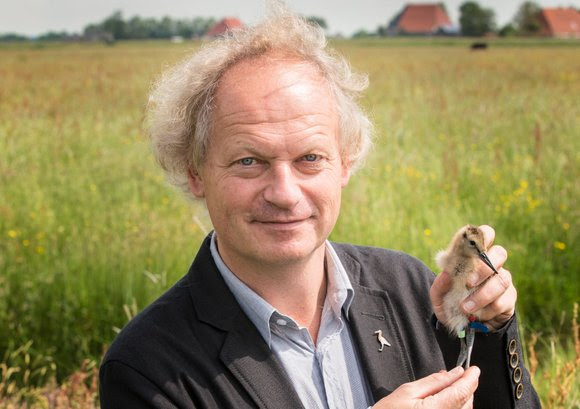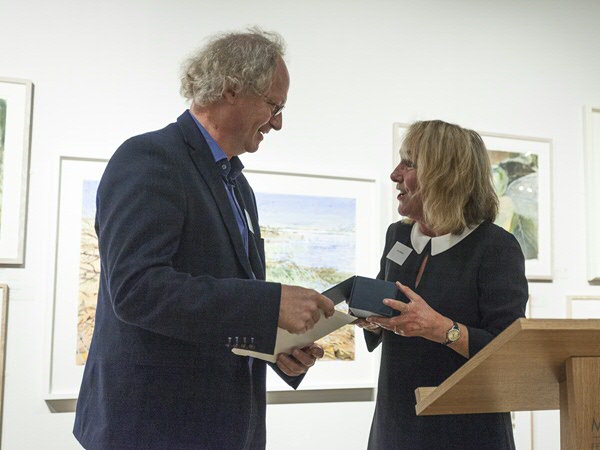Theunis Piersma wins top British ornithology award
Professor Theunis Piersma, of the University of Groningen and of the NIOZ Royal Netherlands Institute for Sea Research, has been awarded the prestigious Marsh Award for International Ornithology by the British Trust for Ornithology (BTO). The award, which is presented annually, is given to an individual scientist whose work on the international stage has had a significant influence on British ornithology.
Thanks to the generous support of the Marsh Christian Trust, BTO has been able to recognise the achievements of those working towards increasing our understanding of bird populations through a series of annual awards. The Marsh Awards are supported by the Marsh Christian Trust and presented by BTO at the Society of Wildlife Artists (SWLA) annual exhibition, hosted at the Mall Galleries in October.
This year, the Marsh Award for International Ornithology has been awarded to Professor Theunis Piersma in recognition of his scientific work on migration, ecology and evolution of birds and other taxa. Using Red Knots and Black-tailed Godwits as the main study species, Theunis and his group established a framework to predict the physical attributes and behaviour of individuals based on climatic, disease and food related factors. His work as also focused on the evolutionary trade-offs involved in predation and anti-predatory behaviour across different species along the food chain. This work, in particular, holds high policy-relevance, as it informs on the risk of overexploitation of marine areas as well as our countryside.

Professor Piersma was also one of the driving forces in establishing the Global Flyway Network, which focuses on long-term demographic studies of shorebirds to identify natural selection pressures on this beleaguered group of birds.
As well as a leading academic, he is also a dedicated mentor to the younger generation of scientists. He has supervised 50 PhD students and 20 postdocs, and he and his team hosts visiting students and scientists from all over the World.
Dr Daria Dadam, BTO, said, “Theunis is a very worthy recipient of the Marsh Award for International Ornithology. His work on shorebirds has revolutionised the way we think about how these birds interact with the habitats they live and feed in. Without this we would have a much poorer understanding of just how important our marine areas are for them, and how even small changes can have consequences for these global travellers.”
Professor Theunis Piersma, said, “The Marsh Award is a fantastic recognition of what we have been trying to achieve as an international team, carefully ‘listening to’ (i.e. deciphering the ecological factors determining their distributions and numbers) what these epic migrants have to say about the state our shared world. As deeply amazing the shorebirds are in their own right, they also have a role for us to play as the canaries in the global coal-mine.”

More news
-
27 January 2026
ERC Proof of Concept grant for Maria Loi
-
26 January 2026
Science for Society | The AI chip of the future
